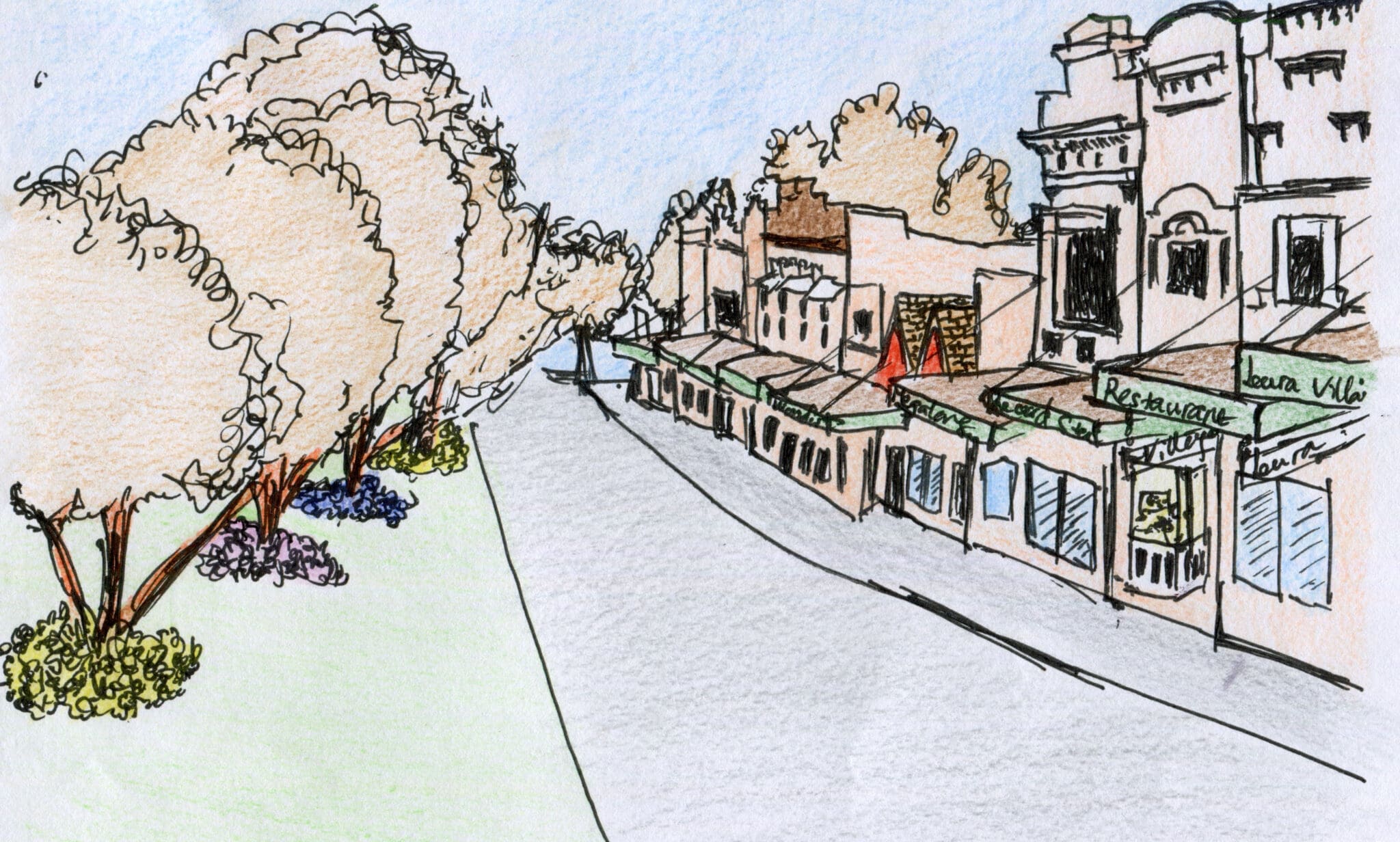Upon disembarking the train through the Blue Mountains Line, the air in Leura is markedly fresh. Each crisp breath seemed to cleanse and nourish my soul. To leave the station, I take a flight of stairs and the view that follows makes the walk feel like an ascension to a higher place. The exit is perched atop the village itself, overlooking the humble vista of a descending boulevard.
Leura is a sanctuary, a place of healing, a sliver of serenity in the chaos of modern life. Aged stores line either side of the main street, united by a procession of cherry trees beckoning you to join their parade. In Spring, tourists flock here to see the vibrant, pink flowers bloom, and in Autumn, the leaves soften into a muted orange. Even the naked trees in Winter welcome a liminal beauty to the town awaiting the vitality of Spring. Leura’s charm bewitches all the seasons.
Though rather insignificant, the locals’ use of the grassy median strip struck me; it is a common sight to see locals converse on the grass, sheltered under neighbourly trees. How could such an awkward space between two lines of traffic be a place for community? Though peculiar, it was exactly what gave this quaint, little town its lure.
What draws many to the village is its vintage nature. The storefronts and arcade are Edwardian, embodying times gone by — I cannot help but think of Diagon Alley when I walk the streets. It’s as if the townspeople have preserved it in a time loop. Whenever I am there, I feel like a visitor from a faraway land, fortunate enough to be welcomed into a few fleeting moments of eternity. This is the magic of their community.
At the heart of the town is the people, and the world, that they’ve weaved together — to reduce Leura down to its aesthetic qualities would be to mistake a beautiful face for a seasoned soul. Approaching the station exit, local artists collaborate in a store called The Nook, where rents, fees, and operation duties are shared. There is everything from dainty ceramics to plush beanies. It is joyous to appreciate the fruits of hard-working creatives who have agency over their trade. I see myself no longer searching for the price tag but the artist’s signature label.
On the other side, the Leura Fine Woodwork Gallery blurs the line between art and products to be sold. Here, the storekeeper welcomed me to merely relish in the artistry at hand. In a world dictated by commercial transactions, this meek gallery seemed to cut straight through the capitalist logic which alienates workers from their labour. The storekeeper told the tales of a Melbournian craftsman, Will Matthysen, who specialises in clockwork and whom she personally knew and had met.
At the bottom of Leura Mall, Megalong Books greets you with its royal blue storefront and twinkling fairy lights. Much like the rest of Leura, the ambience swaddles you like a comforting blanket. It is a place of high romance and I couldn’t help but self-indulgently pick out books as if I was swooning in a 90s rom-com. Upon exiting, there’s a garden bed with an endearing placard which indicates it is sponsored by the bookstore and maintained by village volunteers.
Life is all about the small things and so is community. This is not to say that larger social gatherings don’t play an important role — the Leura Garden Festival boasts the very best of Leura’s natural gifts and the Village Fair had been running 38 years prior to the pandemic. However, it is these humble, collective efforts that marry to create a world worth being part of.
Regardless of where we are, I think this idyllic small-town has a lot to teach us about togetherness. Whether nurturing a cosy environment in our homes or rebuilding a dormant campus culture, I hope we can look to this unassuming haven of magic and love.





